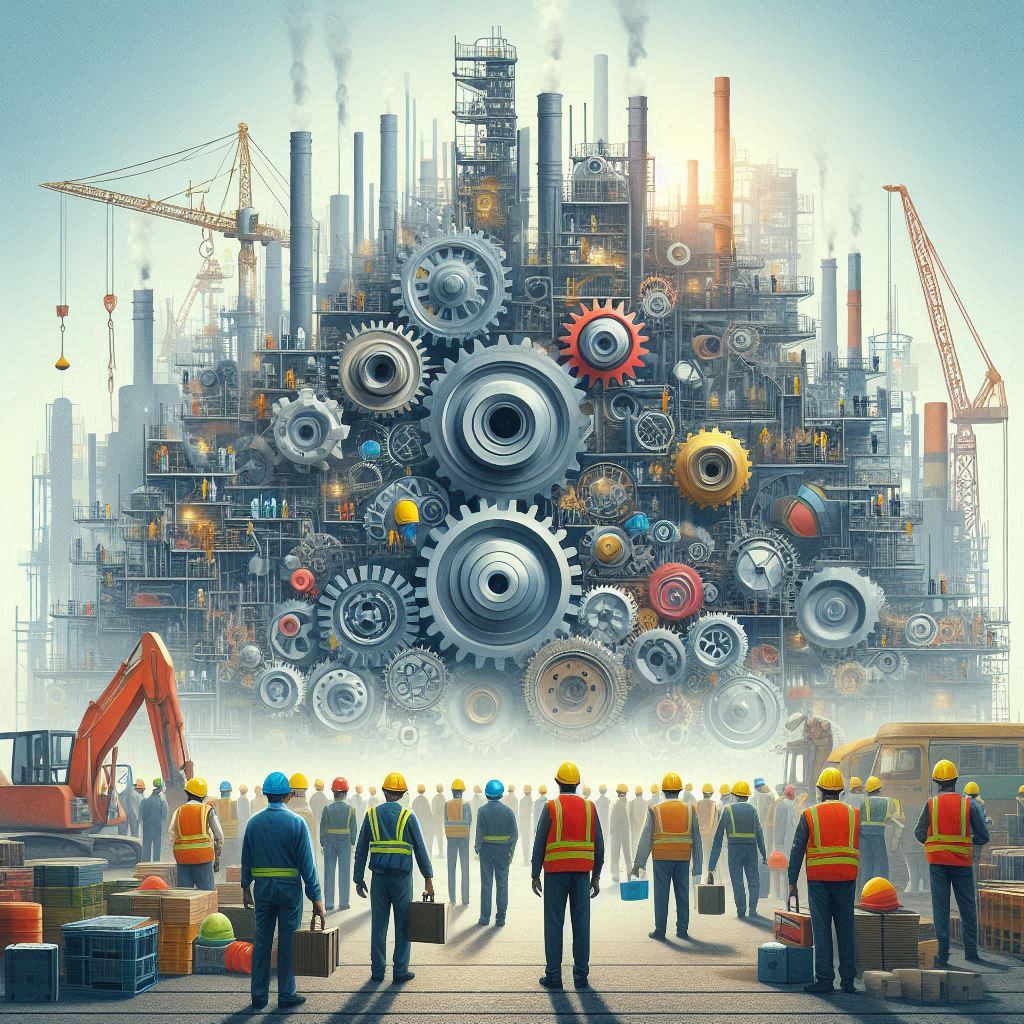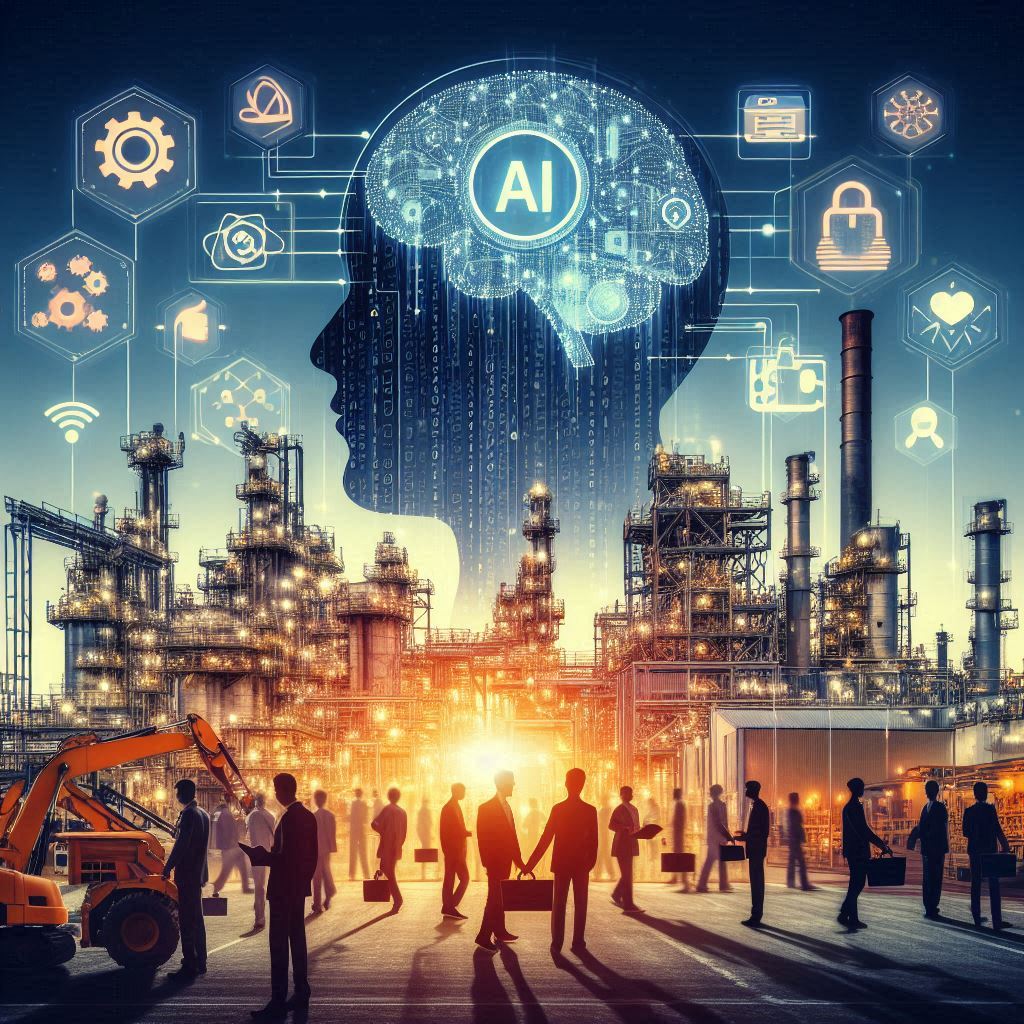
Industrial accidents in manufacturing units are a grave concern, particularly in India, where thousands of workers face life-threatening dangers daily. Despite advancements in technology and stringent safety regulations, a significant number of incidents continue to occur, leading to severe consequences for the workforce and the economy. In this blog, we will delve into the alarming statistics of industrial accidents, explore the urgent need for better safety measures, and discuss how Artificial Intelligence (AI) can play a pivotal role in mitigating these risks.
Industrial accidents in India result in the death and disability of thousands of workers annually. Government data reveals that, on average, three workers die every day in Indian factories due to inadequate safety measures. In 2021, the Labor Ministry reported that at least 6,500 employees had perished while working at factories, ports, mines, and construction sites over the preceding five years. However, labor activists and trade unions believe this figure is underreported, suggesting the actual numbers might be even higher.
From 2017 to 2020, the Ministry of Labour & Employment's Directorate General Factory Advice Service & Labour Institutes (DGFASLI) recorded an average of three deaths and eleven injuries per day due to accidents in India's registered factories. Specifically, between 2018 and 2020, 3,331 deaths were documented. These statistics only cover registered factories, while approximately 90% of Indian workers are employed in the informal sector, likely making the real numbers much higher.
In 2020 alone, India had 363,442 registered factories, of which 84% were operational, employing 20.3 million workers. Despite a reduction in reported injuries from 2018 to 2020, an average of 1,109 deaths and over 4,000 injuries were still reported annually in registered factories. Gujarat was notably affected, with one in five injuries and fatalities occurring in the state. The chemical and chemical products sector saw the highest number of injuries (192) and deaths (79) in 2019.
The sheer scale of these accidents underscores the urgent need for more effective safety measures in manufacturing units. The current legislative framework, including the Factories Act, 1948, and the recently passed but yet-to-be-implemented Occupational Safety, Health and Working Conditions (OSH) Code, 2020, highlight the gaps in ensuring worker safety. The new OSH Code, while an improvement in some areas, is considered less stringent than its predecessor, raising concerns among safety experts.
One major issue is the lack of comprehensive coverage and enforcement. Safety regulations often apply only to larger factories, leaving smaller units and informal sectors vulnerable. Furthermore, self-certification and sporadic inspections fail to create a robust safety culture. There is a critical need for systematic data collection and analysis of industrial accidents to guide policy and enforce safety standards more effectively.

Artificial Intelligence (AI) offers promising solutions to enhance safety in manufacturing units. By leveraging advanced technologies, AI can help predict, prevent, and respond to industrial accidents more effectively. Here are several ways AI can make a significant impact:
Predictive Analytics: AI systems can analyze vast amounts of data from various sources, including historical accident reports, equipment maintenance logs, and worker health records. By identifying patterns and predicting potential hazards, AI can provide early warnings and help prevent accidents before they occur.
Real-time Monitoring and Alerts: AI-powered sensors and cameras can monitor factory environments in real time, detecting anomalies such as equipment malfunctions, unsafe worker behavior, or hazardous conditions. Immediate alerts can be sent to supervisors and workers, enabling swift action to mitigate risks.
Automated Safety Inspections: AI-driven robots and drones can conduct regular safety inspections, reaching areas that might be hazardous or inaccessible to humans. These inspections can identify safety violations, wear and tear on machinery, and other risk factors, ensuring timely maintenance and compliance with safety regulations.
Incident Response and Analysis: In the event of an accident, AI can assist in coordinating emergency responses, ensuring that medical help and rescue operations are promptly deployed. Post-incident, AI can analyze the causes and suggest improvements to prevent future occurrences.

The current state of industrial safety in India's manufacturing units is alarming and calls for immediate action. The integration of AI into safety protocols presents a transformative opportunity to significantly reduce the number of accidents and fatalities. By harnessing the power of predictive analytics, real-time monitoring, automated inspections, enhanced training, and efficient incident response, AI can help create safer working environments for millions of workers.
We, at Nwarch.AI (a subsidiary of Daten and Wissen), are dedicated to addressing these critical safety issues. Collaborating with numerous industries, we support their digitization journeys to achieve remarkable outcomes. Through our expertise in computer vision, deep learning, and data-driven solutions, we empower organizations to enhance productivity, promote sustainability, and ensure a safer working environment. By leveraging advanced technologies, we enable businesses to tackle challenges, optimize operations, and drive positive transformations in their respective domains.
Our commitment to innovation and safety means we are uniquely positioned to help industries mitigate risks and prevent accidents. Together, we can build a future where industrial safety is paramount, and every worker returns home safe.
This website uses cookies to improve your experience. We'll assume you're ok with this, but you can back-out if you wish.